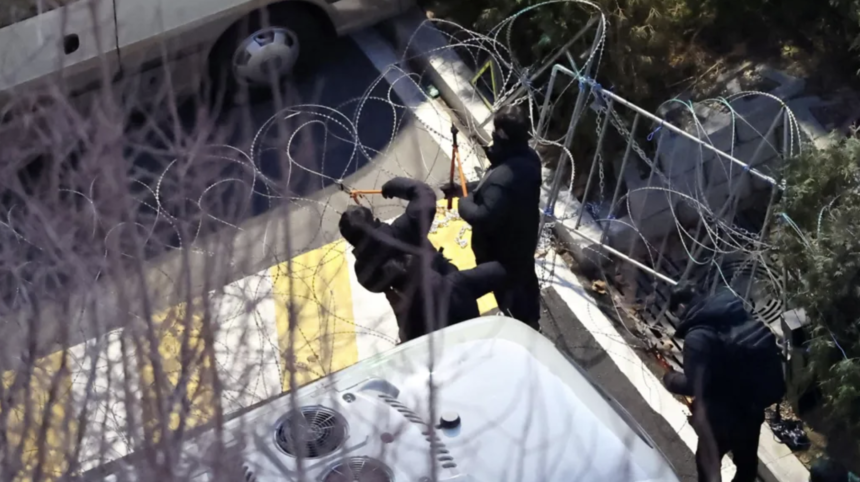South Korean President Yoon Suk Yeol has made history by becoming the first sitting leader in the nation to be arrested. The arrest comes after weeks of turmoil following Yoon’s impeachment by parliament, which led to his suspension from office pending the Constitutional Court’s decision on the impeachment.
The arrest operation was dramatic and carefully planned, with a large force of investigators and police surrounding Yoon’s residence in central Seoul. Armed with ladders, bolt cutters, and other equipment, authorities were able to successfully take the embattled president into custody after hours of effort.
Before his arrest, Yoon released a video stating his belief that the investigation against him was unlawful. He claimed that investigators had breached his residence’s security perimeter using fire equipment. However, following his arrest, Yoon remained silent during questioning.
Yoon’s legal team has strongly opposed the arrest, arguing that the Corruption Investigation Office for High-ranking Officials lacks the authority to investigate allegations of insurrection. They also questioned the validity of the arrest warrant, claiming it was issued by the wrong jurisdiction. Despite these objections, the court upheld the legality of the warrant.
The arrest has elicited mixed reactions from political leaders, with opposition Democratic Party floor leader Park Chan-dae calling it a victory for justice. The government is now being led by acting President Choi Sang-mok, the Finance Minister, following the impeachment of Han Duck-soo, the first acting president after Yoon’s suspension.
As South Korea awaits the Constitutional Court’s verdict on Yoon’s impeachment, the nation finds itself in a period of uncertainty. The outcome of this political crisis will have far-reaching implications for the future of the country.







